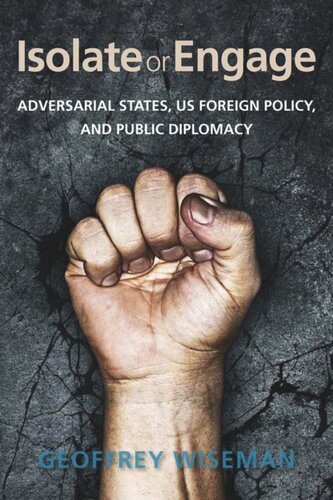

Most ebook files are in PDF format, so you can easily read them using various software such as Foxit Reader or directly on the Google Chrome browser.
Some ebook files are released by publishers in other formats such as .awz, .mobi, .epub, .fb2, etc. You may need to install specific software to read these formats on mobile/PC, such as Calibre.
Please read the tutorial at this link: https://ebookbell.com/faq
We offer FREE conversion to the popular formats you request; however, this may take some time. Therefore, right after payment, please email us, and we will try to provide the service as quickly as possible.
For some exceptional file formats or broken links (if any), please refrain from opening any disputes. Instead, email us first, and we will try to assist within a maximum of 6 hours.
EbookBell Team

0.0
0 reviewsThe U.S. government has essentially two choices when dealing with adversarial states: isolate them or engage them. Isolate or Engage systematically examines the challenges to and opportunities for U.S. diplomatic relations with nine intensely adversarial states—China, Cuba, Iran, Libya, North Korea, U.S.S.R./Russia, Syria, Venezuela, and Vietnam: states where the situation is short of conventional war and where the U.S. maintains limited or no formal diplomatic relations with the government.
In such circumstances, "public diplomacy"—the means by which the U.S. engages with citizens in other countries so they will push their own governments to adopt less hostile and more favorable views of U.S. foreign policies—becomes extremely important for shaping the context within which the adversarial government makes important decisions affecting U.S. national security interests. At a time when the norm of not talking to the enemy is a matter of public debate, the book examines the role of both traditional and public diplomacy with adversarial states and reviews the costs and benefits of U.S. diplomatic engagement with the publics of these countries. It concludes that while public diplomacy is not a panacea for easing conflict in interstate relations, it is one of many productive channels that a government can use in order to stay informed about the status of its relations with an adversarial state, and to seek to improve those relations.